Unlocking growth: The power of licensing for CPG brandsUnlocking growth: The power of licensing for CPG brands
Take a look at the 2024 licensing landscape from Informa Market's Global Licensing Group and find out how to position your brand for a licensing agreement.

In the competitive CPG landscape, brands constantly seek innovative strategies to stand out, build customer loyalty and expand their market presence. One effective yet often overlooked avenue for achieving these goals is licensing. Licensing offers brands a unique opportunity to leverage their intellectual property and extend their reach beyond traditional product lines.
New Hope editor Gianna Rosenbach recently attended The Global Licensing Group’s Brand Licensing Europe 2023. There, she collaborated with License Global and Licensing Unlocked and is here to share with New Hope readers what licensing is and how Licensing Unlocked is the perfect tool to help brands get started. Read on to explore how licensing can be a game-changer for CPG brands.
Understanding licensing
Licensing is a business arrangement wherein a brand grants permission to another party (the licensee) to use its intellectual property, such as trademarks, logos or brand elements, in exchange for agreed-upon terms and royalties. This can open doors to new revenue streams and market segments for CPG brands. In the dynamic world of CPG, where consumer preferences and market trends are ever-evolving, licensing emerges as a strategic tool for brand growth.
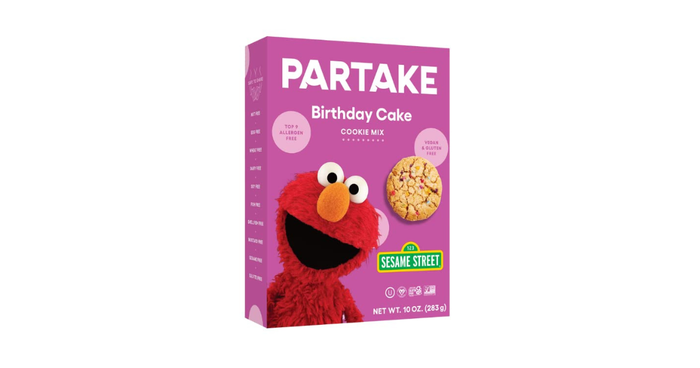
Partake Birthday Cookie Mix and Sesame Street
Ben Roberts, EMEA content director, License Global, recently shared at Brand Licensing Europe's 'State of the Nation' seminar the traditional definition of licensing for the industry as "Licensing is a contractual agreement between a manufacturer and an intellectual property owner to build an approved range of consumer products." The industry is constantly changing, and Roberts now reframes the definition as "Licensing takes an emotional connection between buyer and brand and brings it to life."
In the ever-evolving consumer packaged goods landscape, licensing has become a powerful tool for brands to extend their reach and impact. The licensing landscape has witnessed a remarkable transformation in the past few years, with food and beverage brands taking center stage. Going into 2024, licensing will emphasize consumer centrality in the industry's current dynamics.
The power of brands in licensing
Over the past decade, food brands have experienced a significant surge within the licensing world. Traditionally dominated by entertainment-focused licensing, the industry has diversified, with food brands carving out their niche. The appeal lies in the ready-made assets and recognizability that food brands offer. Licensing provides an avenue for these brands to connect with consumers beyond the supermarket shelves, tapping into trends such as nostalgia and comfort.
The licensing landscape within the food and beverage market is dynamic, with trends continually evolving. Collaborations have become a significant force, particularly in unexpected sectors like footwear.
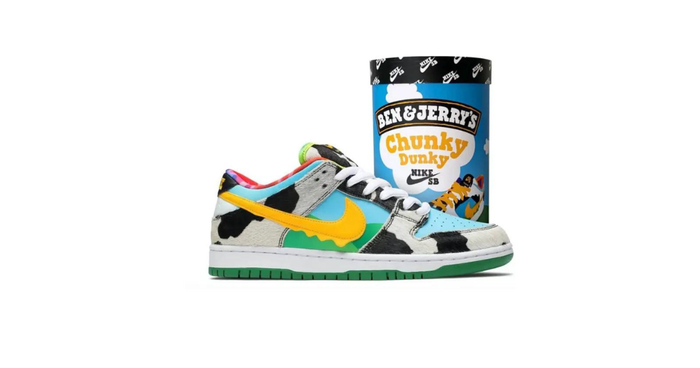
Ben and Jerry's and Nike Chunky Dunky Sneaker
In personal care, the emergence of collaborations on packaging is also opening up new avenues. For natural and organic CPG brands, licensing presents a strategic opportunity to expand beyond traditional boundaries. It is not merely about revenue but about elevating brand awareness and creating unexpected connections. By carefully navigating the licensing landscape, these brands can tap into the power of collaborations, adaptability and consumer-centric strategies to thrive in the evolving consumer packaged goods world.
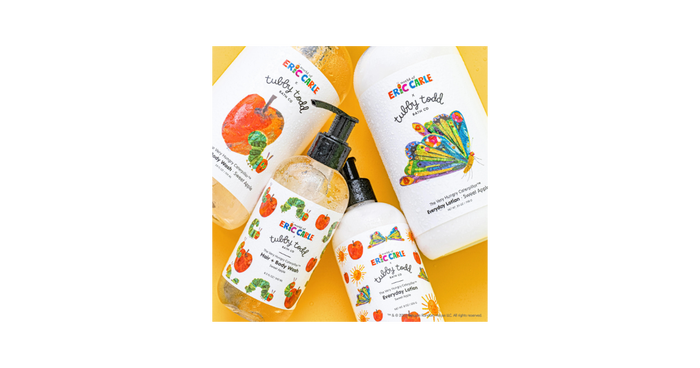
The World of Eric Carle and Tubby Todd Bath Co.
The landscape of licensing in 2024
As we look ahead to 2024, the licensing landscape is shifting. Licensing is no longer confined to contractual agreements; it's about forging emotional connections between buyers and brands. The industry's transformation suggests a dynamic and collaborative future, with opportunities emerging from innovative partnerships between brands, retailers and licensors. It is no longer just about a contract as the industry leans into more creativity. Despite economic challenges, consumers are still engaging with licensed products and more so than they are with regular retail.
The top 10 new licenses for 2024 feature Barbie, Netflix, Care Bears, Disney, Mattel, Minecraft, Warner Bros., DC Comics, Hasbro and Hello Kitty. The industry's significant shift involves a more creative and collaborative process, transcending traditional licensing contracts.
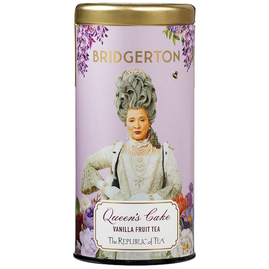
Netflix's Bridgerton and The Republic of Tea
Key benefits of licensing
Brand extension
Licensing allows brands to extend their influence into new product categories or industries and broaden their consumer base. Collaborations are great for marketing purposes. That's why big corporate companies ask for it. Collabs get a brand in front of new consumers and introduce it to younger consumers.
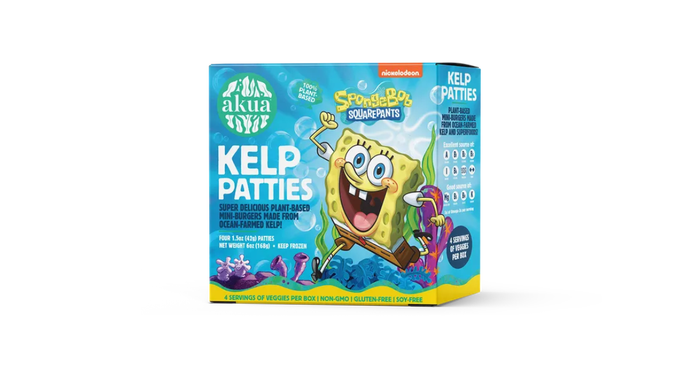
Akua Kelp Patties and Nickelodeon's Spongebob Squarepants
Market expansion
Through licensing agreements, CPG brands can enter new geographical markets or demographics that might have been challenging to reach otherwise. This facilitates global growth and helps tap into diverse consumer preferences in new territories and product categories. This also works well in key regions where brand recognition is already strong but maybe not purchasing. Combining with a brand that consumers are already buying strongly in a particular territory also helps get the other brand into their carts.
Risk mitigation
Licensing enables CPG brands to diversify without the capital-intensive process of developing and launching new products. By partnering with established licensees, brands can reduce financial risk while benefiting from the expansion. Licensing can also be a cost-effective way to bring new products to market. Instead of investing in research, development, and production, brands can leverage licensees' expertise in specific product categories, such as creating a fashion item designed with the visual elements of a food brand.
Brand loyalty and recognition
Licensing can enhance brand visibility and strengthen customer loyalty. When consumers encounter familiar brands in unexpected contexts, it reinforces brand recall and establishes a deeper connection with the audience.
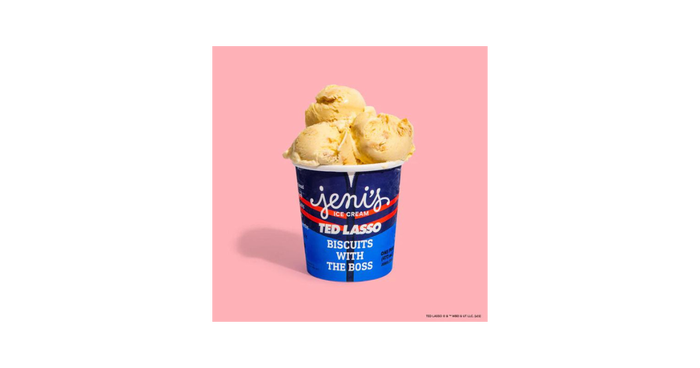
Jeni's Ice Cream and Ted Lasso Biscuits with the Boss
Innovation and fresh perspectives
Collaborating with licensees often brings fresh ideas and perspectives. This infusion of creativity can lead to the development of unique products that resonate with evolving consumer trends. There is a mutual compromise required by both parties involved in a collaboration. While some creative control on both sides is relinquished, the benefits far outweigh the compromises and can foster successful long-term partnerships that evolve, incorporating new products and initiatives. This strategy can transform well-known brands with recognizable assets beyond their traditional product lines. A well-known brand with an archive of design assets can be transformed into so much more beyond food by adapting the brand's core features into a range of products.
.png?width=700&auto=webp&quality=80&disable=upscale)
Martha Stewart and Liquid Death Candle
Competitive advantage
Licensing provides a competitive edge by offering brands a diversified product portfolio. This versatility can differentiate a brand from competitors, attracting a wider range of consumers.
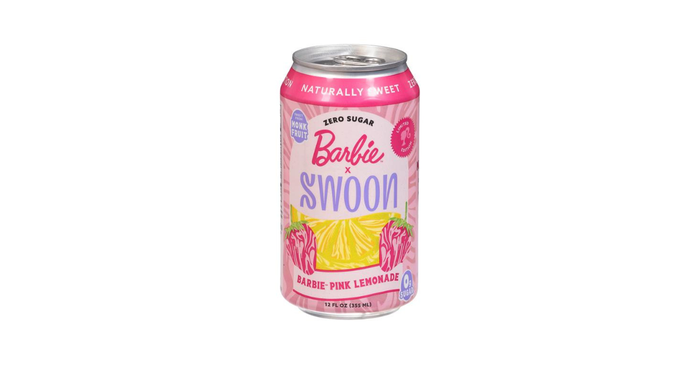
Barbie and Swoon Pink Lemonade
Where to get started
CPG brands willing to explore the possibilities of licensing can unlock new dimensions of success and secure a prominent position in the hearts and minds of consumers worldwide. For brands new to licensing, New Hope Network highly recommends checking out Licensing Unlocked, an on-demand, accredited training delivered by some of the industry’s brightest experts. This interactive and actionable training offers a combination of video lessons, real-life case studies, and downloadable resources and templates, along with a Q&A functionality that allows you to have your questions answered by experts. Licensing Unlocked is an excellent onboarding partner for businesses to help them upskill their staff as well.
.png?width=223&auto=webp&quality=80&disable=upscale)
For further reading, head over to License Global to learn more in-depth about what brand licensing is and further examples. More on food and beverage licensing can be found here. Then get started with Licensing Unlocked for brand licensing made easy!
About the Author
You May Also Like





